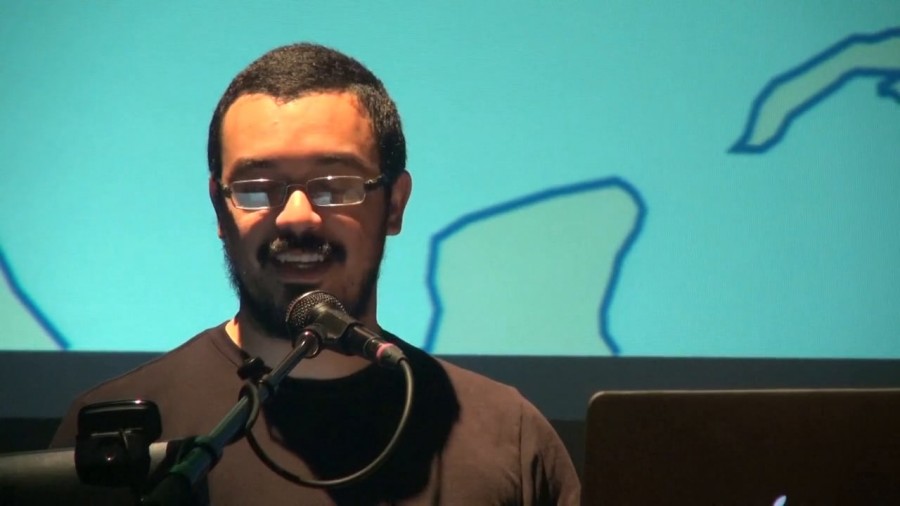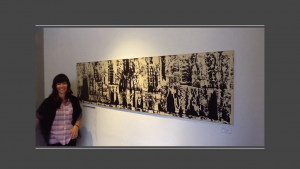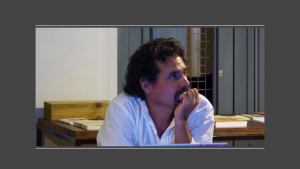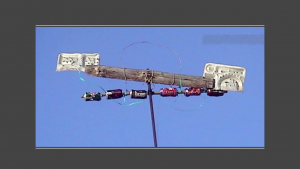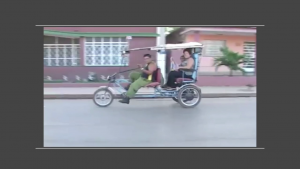Hi, everybody. I’m going to talk about a bit of my experience with art and technology in Puerto Rico, which is where I’m from.
Puerto Rico is a small island in the Caribbean, and most of the time when people think of Puerto Rico, they think about beaches, drinking, drinking on beaches, and Johnny Depp making a fool of himself recently. But there’s more to it than that. Puerto Rico has been developing an interesting art and technology community for the past few years, and it would not have happened at all if it weren’t for two people, Carola Cintrón Moscoso and Alejandro Quinteros.
They’re professors at the University of Puerto Rico, and the school of fine arts there. With them, people can learn about electronics installations, sound art, video projection, and interactivity. But there was one thing lacking throughout this whole program. I learned a lot there, but there was no community around it. So what do you do when there’s no community? You make it yourself.
So I set out to create a space for people to learn about technology, [and] research it for creative purposes outside of academia. We would meet every week. The problem is that nobody went. So to garner interest, we gave free workshops, which attracted some people but they still wouldn’t meet with us regularly. They would go one time, do the workshop and sort of not know what to do there, and even though we invited them they wouldn’t go back.
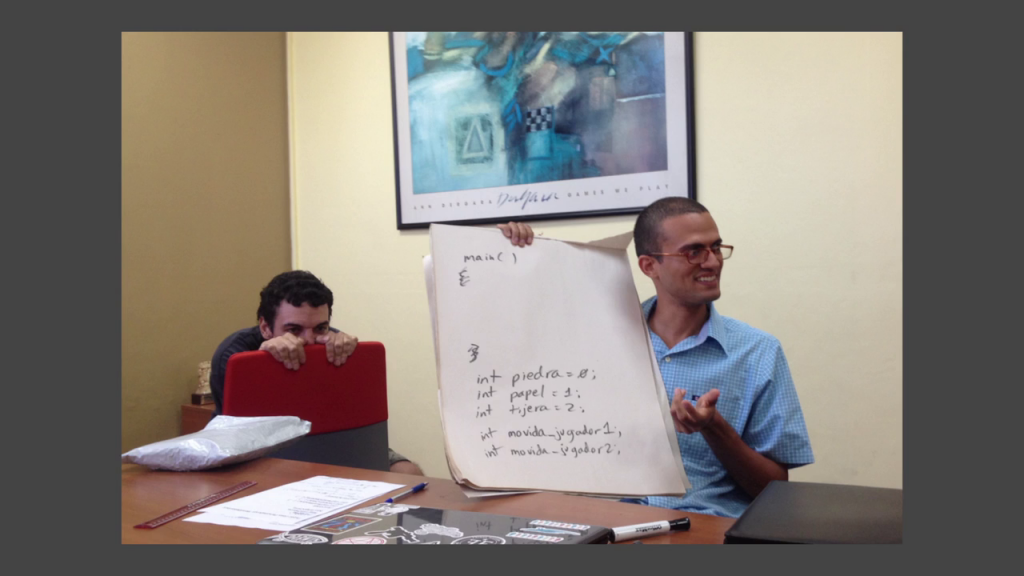
This is one of our free Unity game development workshops. It was three days, and every day there was half the people of the day before. So if we start with eight people, there was only like two people or maybe even nobody.
That was sort of heartbreaking, because we wanted to build the community and it was not working. But one good thing happened during this workshop specifically, you can see that guy right there, that’s Noel. He’s a game developer who was diagnosed with autism, and he decided to come join us an hang out with us. So even if there is a situation like, for me example, I had never dealt with anybody who’d been diagnosed with autism and the details that go into that, it doesn’t matter. If you want to build a community you still have to help each other and nourish that.
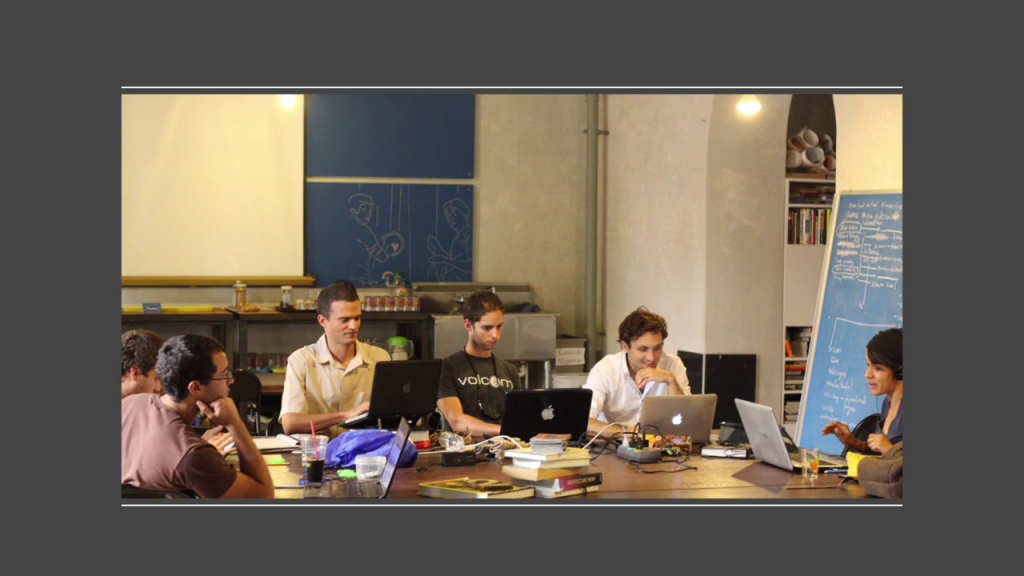
The group was growing a little bit, but it was still very small and [with] very little representation of women. There’s only one in that image. So we decided to test a theory, which is that people don’t value free things. So we decided to charge $25 for a Processing workshop, and we got a full house.
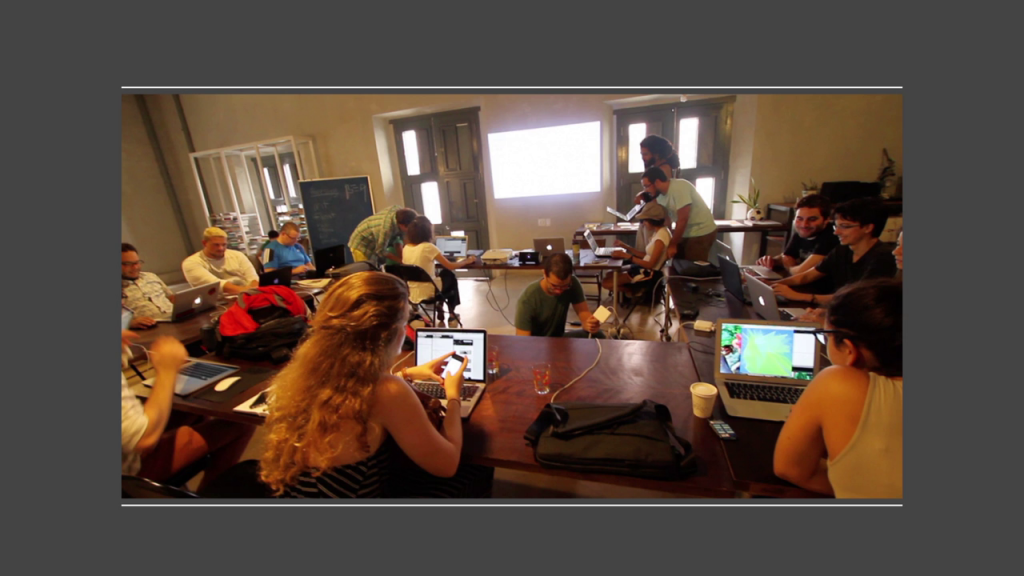
This is our Processing workshop, totally full, and people valued this. They paid attention, it was four days, and we kept everybody throughout the whole time. So it was like seventeen people, going from like four people on a regular basis, to four weeks full of people. But the thing is that we invited them to return again to our weekly meetings and they still didn’t. So there’s still something there that we haven’t solved.
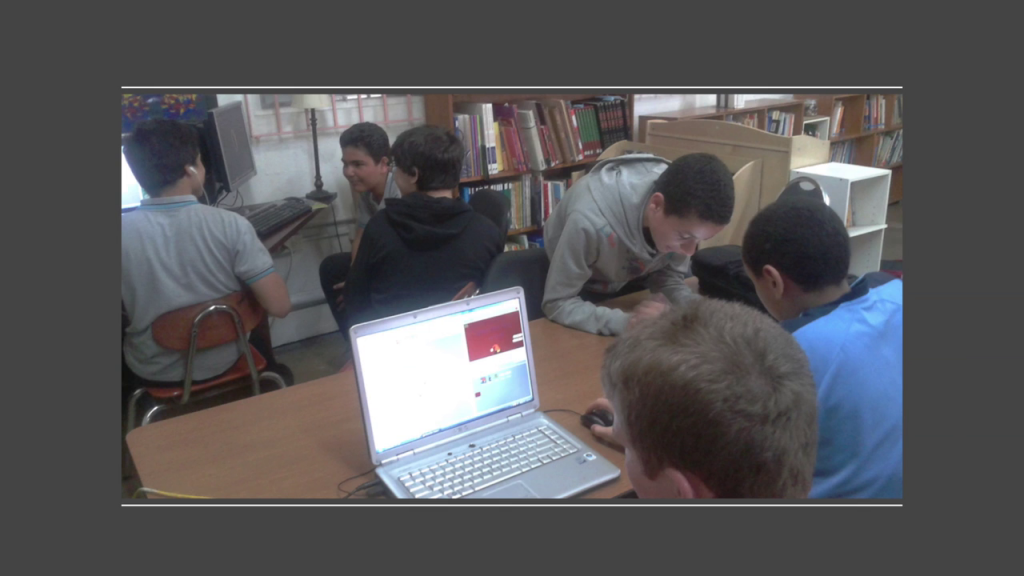
Here you can see the students at an after-school program that I did. They learned about Arduino, Processing, Scratch, 3D modeling, printing, and even Pure Data for electronic music. The problem here is that there’s no girls. This is something that’s very common in Latin and Caribbean culture. Tech is for boys, and if a girl is interested (which she was; I experienced this), there was one girl that was interested, but she was totally repelled from the boys’ group. I tried to stop that as directly as I could, but it’s very ingrained in the culture, and it was difficult. We did get one participant, but she would go sporadically and she was still intimidated. That’s something that we really need to work on.
There’s another place that I’m interested in, and that’s Cuba. I recently had the opportunity to go to Cuba to participate in a video art festival. I’m not a video artist, but they’re interested in expanding their definition of what art and technology is, so it’s very interesting because video art is sort of the it thing right now. It’s kind of mind-blowing like, “Oh, there’s art and technology that’s not video art.” It’s very interesting coming from a place like this where video art’s sort of passed on to greater pastures, and other things are happening. This is a great opportunity to establish myself in this art and tech field, which is growing in Cuba.
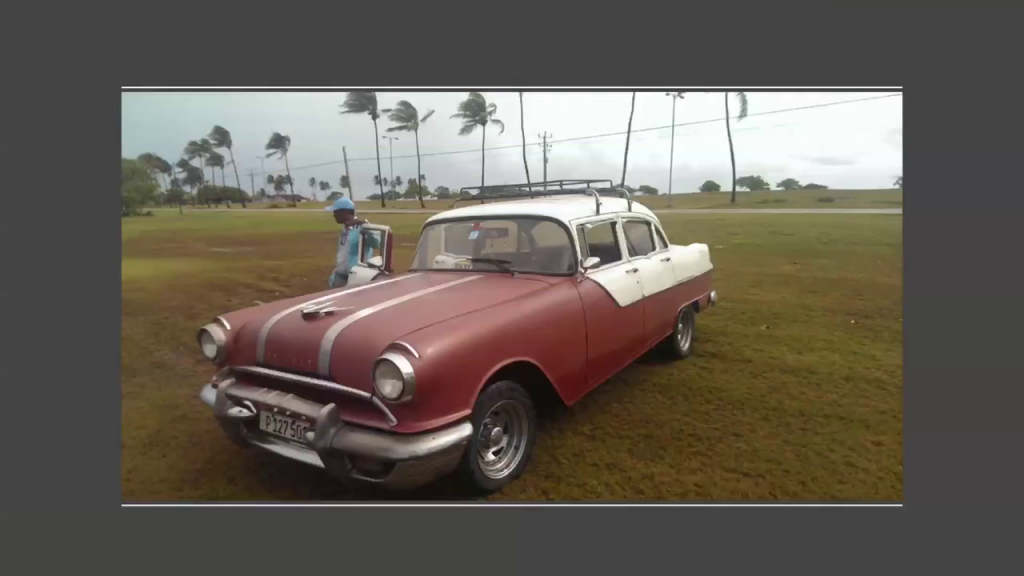
Cuba is amazing. They have a hacker culture. Due to the relationship that they had with the US, the people had to solve problems. This is a car that this guy hacked himself. He turned this car into a diesel engine and installed motorized windows in it.
People create their own antennas, and they turn bikes into taxis.
During this festival, I gave an intro to [the] terminal and Python, just to show they that with the little bit of Internet connection that they have, they can still connect to data sources and create applications with it, even with a 56k connection.
With recent developments in the relationship between Cuba and the US, people are excited to enter a new phase, especially with the Internet. This was just the first step, and I’m excited to go back and strengthen the ties between the art and tech communities in the Caribbean and the US.
That being said, let’s go to Puerto Rico. I propose to have a festival or a conference in Puerto Rico, especially during the cold months where nobody wants to be over here. It’s a perfect time to do it. I can’t do it alone, and I need your help. So let’s make it happen. Thanks. I’ll buy you a drink.
Further Reference
Overview page at the Studio for Creative Inquiry’s web site.
